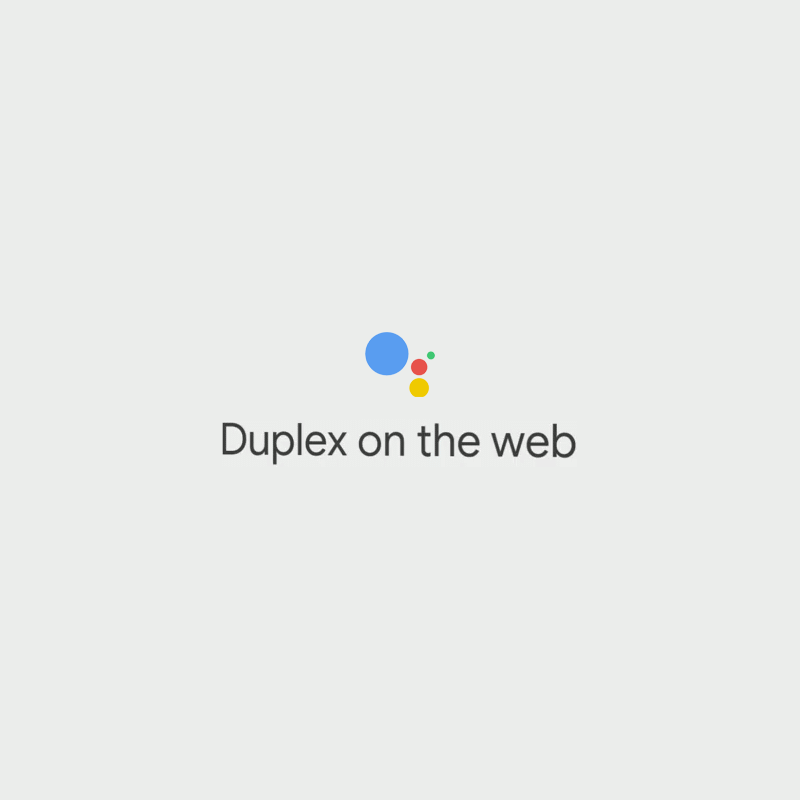
At Google's I/O conference back in 2018, one of the things that the tech giant introduced, was 'Duplex'.
As one of its ways to expand its services beyond just a search engine, with Duplex, Google tried to reassured the world that AI has a place to live in the society.
At the event, CEO Sundar Pichai demoed how the human-like assistant caller can call a restaurant and a hair salon to book an appointment.
But this was where the problem started: Duplex has been criticized for sounding too human.
Critics worry that people won't be able to tell they're speaking to a robot, just like during the demo that the person on the other end of the line didn't know that they were talking to a robot. Immediately after the event, the project spurred a debate over ethics in artificial intelligence, with many experiencing fear over the robot's ability to deceive people.
Many observers felt that the assistant should at least have identified itself as a robot.
At Google I/O conference in 2019, Google wants to address that issue, by making Duplex less disturbing, less creepy, but smarter.
At the event, Google announced an update to Duplex called 'Duplex on the Web'.
In an early demonstration, Google said that Duplex expands beyond the phone and voice to the web, with it being able to pull in users' information and navigate the web for them to book other things like car rentals and movie tickets.
The difference between the old and updated Duplex is that, the newer version is 'quieter'.
So instead of just confirming a booking for its users, users can scan the auto-filled forms to approve what Duplex has written in before moving forward.
In general, this should make the Google Assistant smarter.
For example, when users get a calendar reminder about an upcoming trip. Using Duplex, the users can ask Google to rent a car for their next trip. Here, Duplex will then open the car rental company’s website and fill out all of the necessary information on the users' behalf.
Throughout the process you Duplex may show a progress bar, similar to when downloading a file. This is because whenever the system needs more information, like a price or seat selection, the process pauses and prompts the user to make a selection.
When it's done, the user can tap to confirm the booking or payment.
And before submitting the request, users can double-check the details.
At the 2019 I/O, Duplex didn't involve in speech-mimicking AI. Instead, Google showcased it like an autofill, but on steroids.
The update redefines how Google is thinking of Duplex: it's not just the name of the search giant's human-sounding AI; it's more of a class of software that helps users with performing tasks. And this time, it's booking - whether it's on the phone, on the web, or elsewhere.
"The way we think about Duplex, in broad strokes, it's a model of technology that allows us to automate tasks," explained Manuel Bronstein, vice president of product for the Assistant.
"It just happens to be that the first task that we showed to automate was making a phone call to a restaurant."
The next thing about voice-recognition technology that Google introduced at the event, is an update to its Google Assistant.
Here, Google unveiled at the I/O that Assistant is receiving its most important upgrade since Google launched the service.
Pichai explained that Google was able to shrink down the voice recognition program down to 0.5GB from 100GB. What this means, the voice recognition should be a lot smarter, as everything can be made to happen on the phone or tablet.
Google demoed the feature on stage, and it worked great for the most part.
The phone was able to recognize the Google Assistant commands almost instantaneously and perform the required actions equally fast.
The Assistant was able to easily switch between apps, perform actions and deliver search results with ease. At the demo, Assistant was used to reply to a text message, search for "photos with animals" stored on the phone, and then send photos in the same app.
Again, everything was done via voice.
The Assistant is even smart enough to recognize a command from the contents of an email.